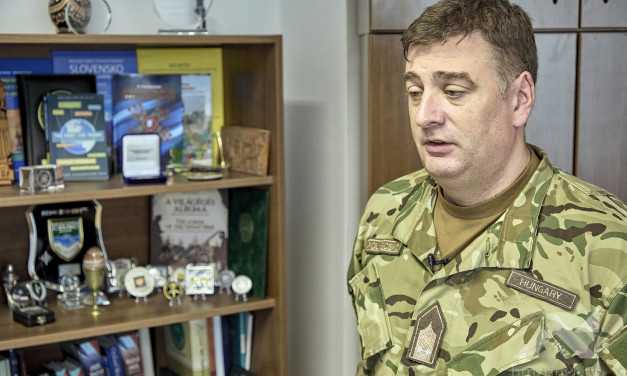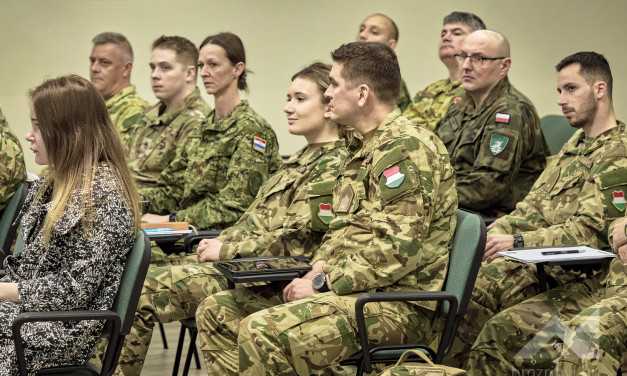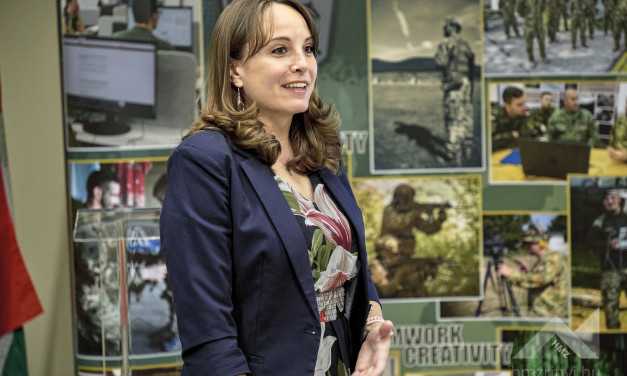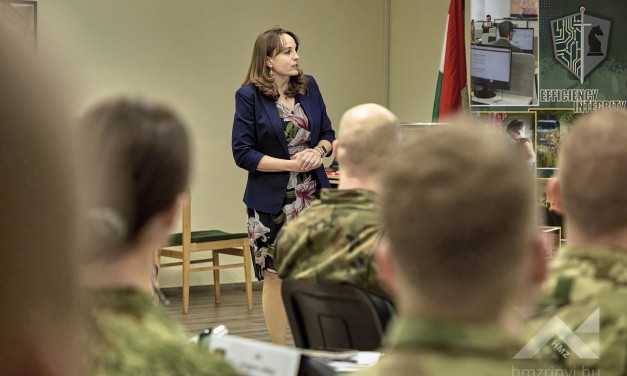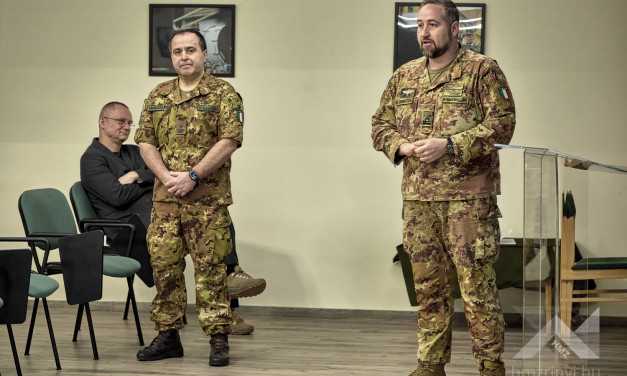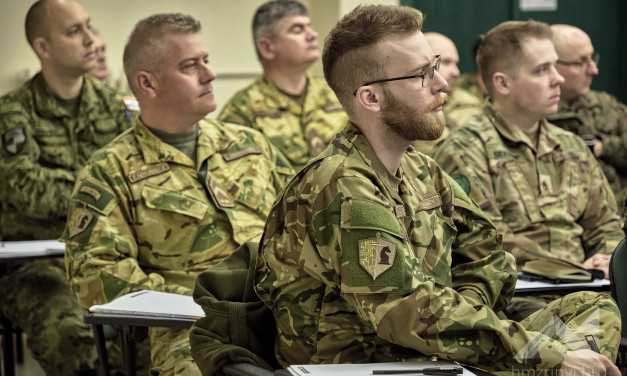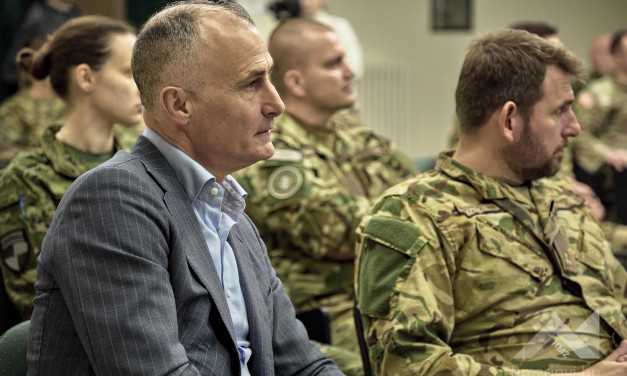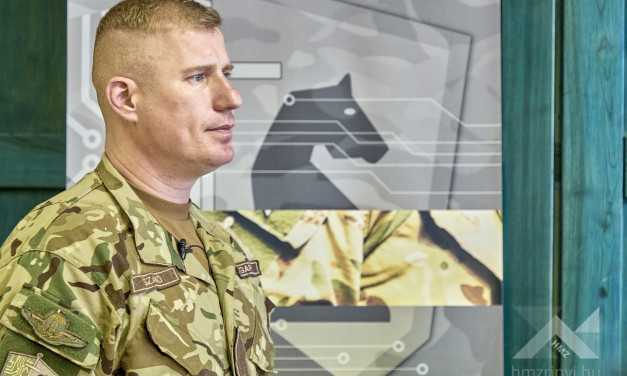Civil-Military Cooperation in the Spotlight
Text: Marcell Burillák | Photo: Zoltán Tischler | 12:01 April 9, 2024Providing support for crisis management or general military exercises is rarely discussed, yet the role of background work is as significant as that of the spectacular tasks. The Hungarian Defence Forces organize it on a high level: every year our soldiers learn the basics of civil-military cooperation from select NATO experts. This year’s NATO Civil-Military Cooperation (CIMIC) Liaison Course is being conducted in Szentendre, Hungary between 8-12 April.
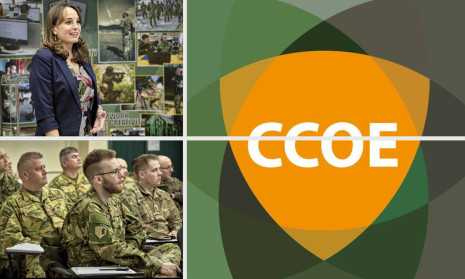
Organized by the NATO CIMIC Centre of Excellence (CCOE), the NATO CIMIC Liaison Course in 2024 is running with 32 participants from eight countries. “This event is exceptionally important for the personnel, as they can learn the basics of this area only during this international training” – said Lieutenant Colonel László Polyecskó, Acting Commander, HDF Cyber and Information Operations Centre (HDF CIOC). The acting commander of the HDF CIOC hosting the course added that they are going to host another one with a similar topic that would focus on civilian environment assessment and analysis.
“Think about how important it is to adequately inform citizens about the activities of the Hungarian Defence Forces. We regularly go on exercises and also provide support for them. Within the framework of the latter, we coordinate our activities with mayors and other civil public administration actors. We inform them about our activity, about the importance of a given exercise, or tell them whom to contact if they have any problems” – explained the lieutenant colonel, after addressing the lecturers and the audience with an informal speech at the HDF NCO Academy in Szentendre on 8 April.
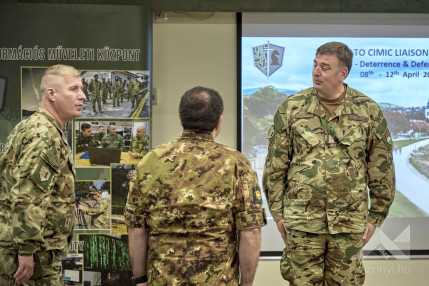
Civil-Military Cooperation (CIMIC) is not merely a means for supporting an exercise, but also an exercise itself – this is how a Dutch lecturer of the course dispelled a common misconception right at the beginning of the course. And what else do the participants learn as new knowledge? In answer to our question, Lieutenant Tamás Szabó said that “They learn the fundamentals of civil-military cooperation. Each year there is a preparatory course for newcomers which teaches them the interactions to be used in various crisis situations”.
“The curriculum encompasses all aspects from planning to execution to analysis. Be it about migration crisis or disaster relief tasks, for example communication with a flood officer, or about fulfilling the obligations stemming from our NATO membership. The latter can be the movement, staging or exercising of a multinational unit, team or subunit in the area of Hungary” – said the officer assigned to the CIMIC PSYOPS Training Subdivision of the HDF Cyber and Information Operations Centre Training Division.
“Naturally, the English-language course is not only running inside the classroom: during this week, the participants are also to receive several tasks involving civil-military interaction. “Every academic and hands-on training session is followed by a test, and then the course participants receive the certificates authorizing them to carry out such type of tasks only after that” – Lieutenant Tamás Szabó told us about the preparation process.
